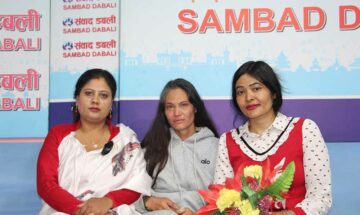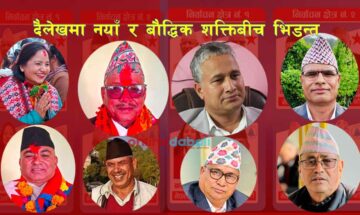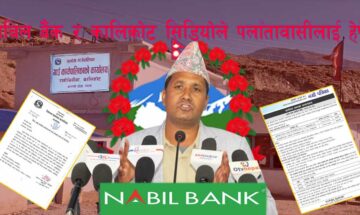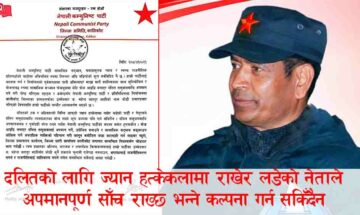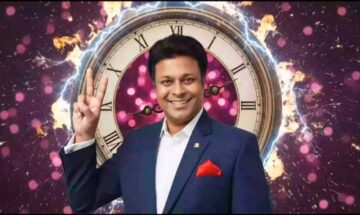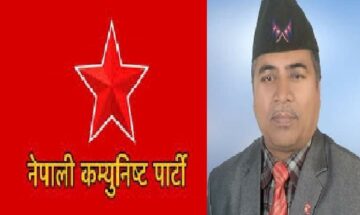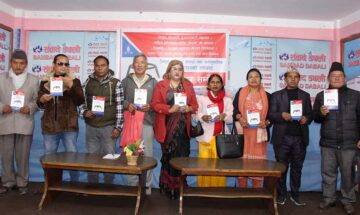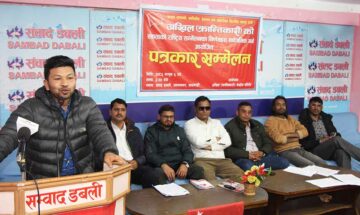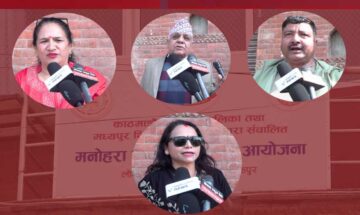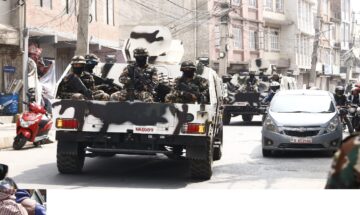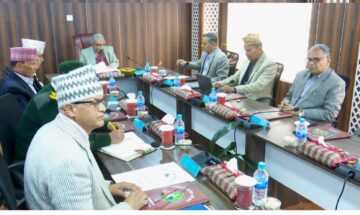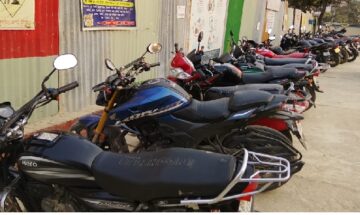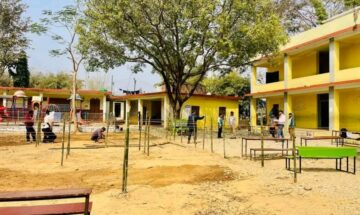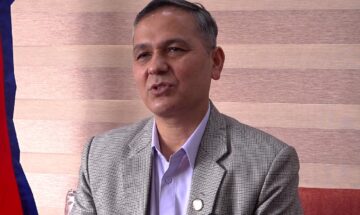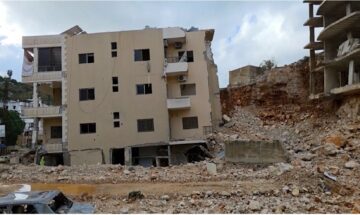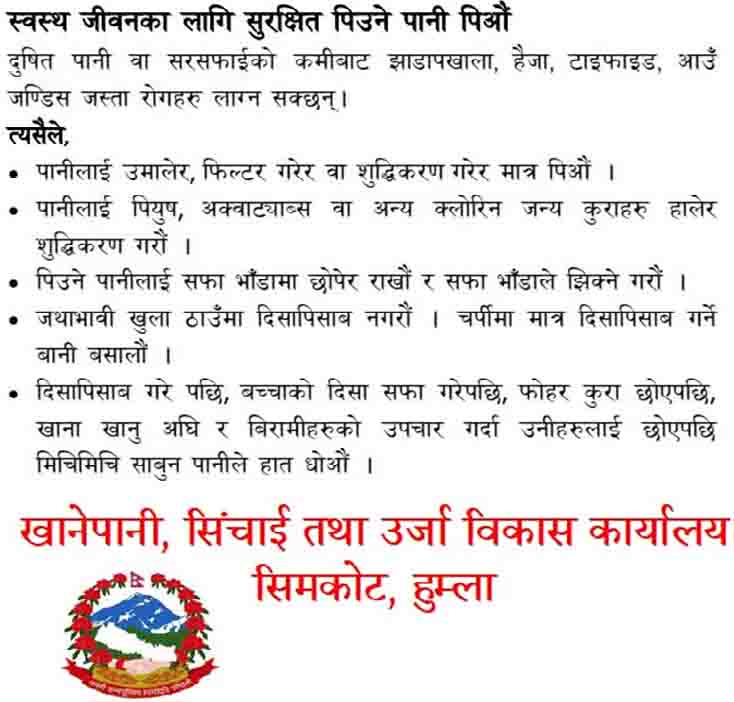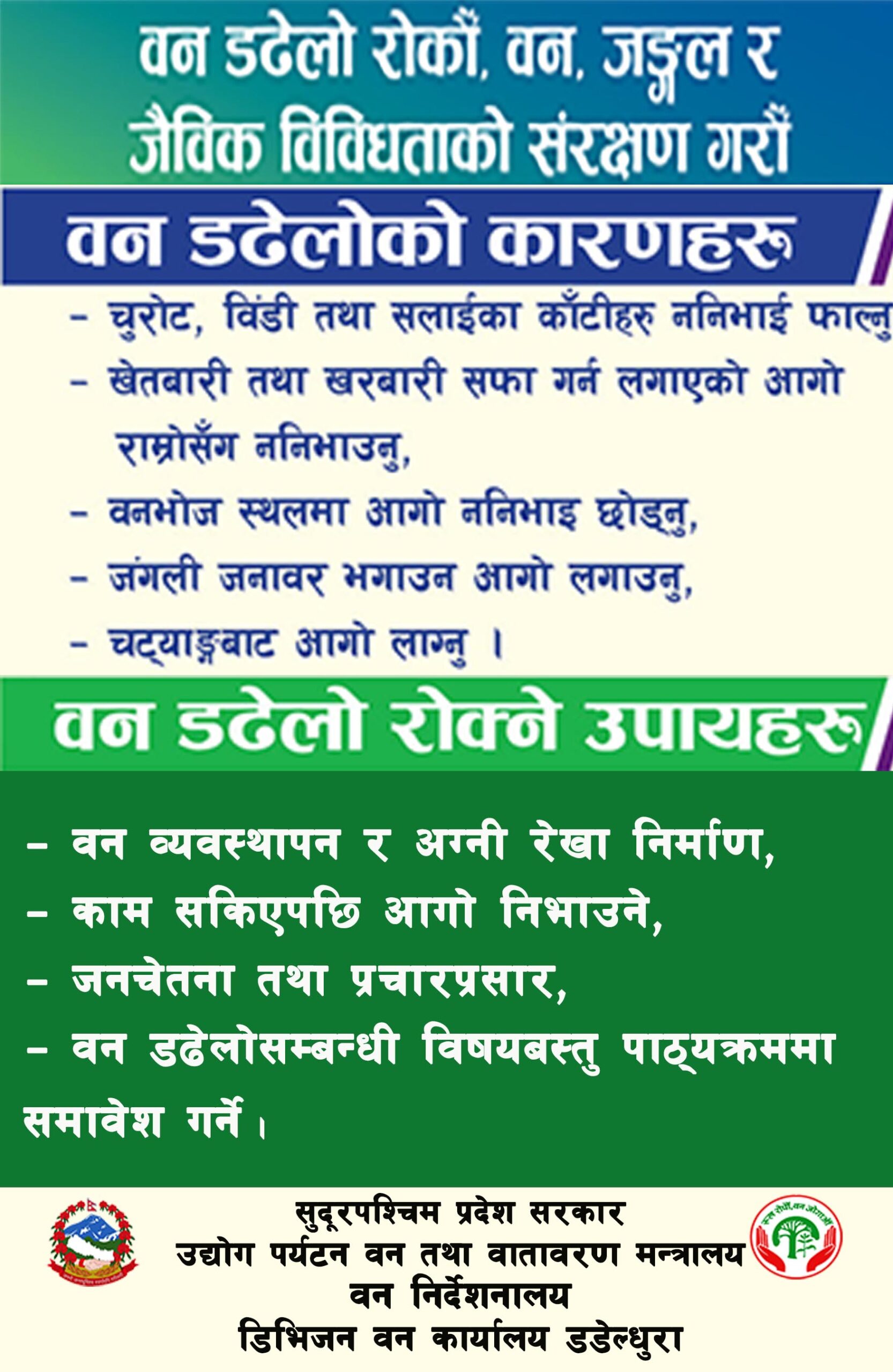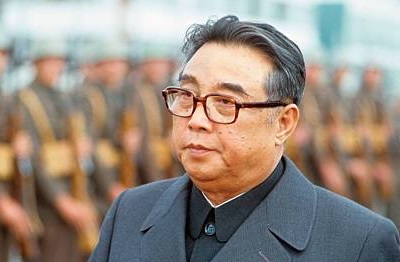
Speech Delivered to the
Delegates to the Pan-National Rally
August 18, 1990
Today I am very pleased to see you delegates to the Pan- National Rally, who have come to visit the homeland with an ardent desire for national reunification from many regions abroad.
You are patriots who have been devotedly struggling overseas to realize national reunification, the cherished desire of the nation. You have made great efforts to hold at Panmunjom the Pan-National Rally for peace and reunification of the country and worked hard to ensure the success of the Pan-National Rally.
I warmly congratulate you upon the success of the Pan- National Rally, a success achieved by your joint effort.
The Pan-National Rally, which has been held in the first year of the 1990s and has given us the hope of national reunification, is a historic meeting that should be specially marked, along with the joint conference of the representatives of political parties and social organizations in north and south Korea in 1948, in the history of our people’s struggle to reunify the country.
It is the first event of great significance in the history of national division; compatriots from the north, south and abroad have met and discussed ways and joint measures to hasten the reunification of the country by transcending differences in thought, ideas, political views and religious beliefs. The Pan- National Rally, which has attracted great interest among progressive people throughout the world, has clearly shown our nation’s burning desire for reunification and the people’s unbreakable will to reunify the country and live in a reunified country as one nation that must not remain divided.
Although one delegate from the south, representing the south-side promotion headquarters, came to the Pan-National Rally, a large number of delegates from reunification movement organizations and important persons fighting for the independent and peaceful reunification of the country came from the north and abroad to attend the meeting. I heard there were about 200 women among the delegates. That is excellent.
You delegates to the Pan-National Rally have made a good resolution and adopted excellent documents to bring national reunification near. The various functions organized before and after the meeting have all been excellently conducted. The south side, though unable to send its delegates to the meeting as planned, has responded actively to the spirit of the meeting by listening to news of the meeting on the radio. I think this is also a good thing.
Viewed as a whole, the Pan-National Rally has proceeded in keeping with the nation’s desire for reunification and its expectations, and the success achieved by the meeting is great, indeed. I am greatly satisfied with this.
As you have unanimously resolved at the Pan-National Rally, we must accomplish the historic cause of national reunification within the 1990s.
Ending the tragedy of national division by reunifying the country is the most pressing task for all the Korean people.
Our people are a homogeneous nation. They have lived in the same land down through the ages, creating their own culture and making their own history. Our nation was divided artificially by foreign forces and is still divided because of the foreign forces’ obstructive moves against reunification. The division of the nation has not only caused immeasurable misfortune and suffering to all our compatriots in the north, south and abroad, but also obstructed the coordinated development of the nation and the prosperity of the country.
This is the age of independence, and divided nations are all advancing towards reunification. There is no reason or condition whatsoever that in this age our nation should continue to live divided. We must not let the tragedy of national division continue any longer; we must reunify the country as soon as possible.
To reunify the country is a burning desire of the entire Korean nation.
The trend to national reunification is now mounting higher than ever before among our compatriots in the north, south and abroad.
Last year Rim Su Gyong, a student representative from Jondaehyop (National Council of Student Representatives–Tr.) in south Korea, visited Pyongyang at the risk of her life. This vividly showed the whole world how strong our people’s desire for national reunification is. Coming to Pyongyang, Rim Su Gyong took a long, roundabout way because of the barrier of division, but upon returning, she crossed Panmunjom at the risk of her life in accordance with the decision of her organization. Though a young student, she has done a heroic deed. Speaking highly of her patriotic action, I called her the flower of reunification and the daughter of Korea.
Certainly, our struggle for reunification is difficult and we cannot expect that the nation’s desire for reunification will be realized easily.
No small forces are still obstructing the reunification of our country. The United States is the main force standing in the way of Korea’s reunification.
The United States has occupied south Korea by force of arms and is lording over it. It keeps 40,000 troops in south Korea on a regular basis, with the prerogative of high command of the south Korean army. The US forces in south Korea and the south Korean army are called the ROK-US Combined Forces, and an American is the commander of the combined forces.
A country that has yielded the prerogative of high command of its armed forces to another country cannot be called an independent state. Although south Korea is said to have its “President”, the Americans have the real power to instal or dismiss the “President”. As historical facts show, the Americans can dismiss the “President” of the puppet government or assassinate him when they do not like him and replace him with another.
The essence of the United States’ Korea policy is to manufacture “two Koreas” and keep south Korea forever as a colony. The United States badly needs south Korea as a strategic war base for domination of Asia and the rest of the world.
As I said in my talks to the managing editor of the Japanese politico-theoretical magazine Sekai several years ago, the Americans consider south Korea a tasty piece of fat and with it between their teeth, will not let it go. That is why the reunification of Korea is a difficult problem.
Japan is a formidable force that also hinders the reunification of our country. Japan, which is now referred to as a major economic power, wants to become a major military power and a major political power in the future. The Japanese militarists are building up their naval force and other “Self- Defence Forces” by preaching the doctrine of “1,000-mile sea route defence”. By this doctrine they mean that they should defend the sea surface and air space of the western Pacific within the range of 1,000 miles from Japan. The doctrine aims, in essence, at keeping the Asia-Pacific region as far as Singa- pore under its control. Japan schemes to become the leader of Asia again and realize its old dream of what it called the Greater East Asia Co-prosperity Sphere. The United States has made Japan a major economic power.
However, when Japan grows into a major military power, she may bite at the United States, just as the saying has it that a dog bites the man who has brought it up.
Japan considers Korea’s reunification to be an obstacle to realizing her wild dream of Asian leadership. The Japanese reactionaries are afraid of the reunification of our country. Our country will be a powerful country when its north and south are reunified. When the economies of the two parts of the country are merged, the economic capabilities will be great, and our country’s population will be 70 million. That is why the Japanese reactionaries are opposed to Korea’s reunification. Describing the military demarcation line in our country as an “anti-communist breakwater”, they openly say that the “anti- communist breakwater” must not crumble. If the United States takes its hands off south Korea, Japan may again make inroads into it.
Because the Japanese reactionaries refuse to discard their wild dream of reinvading Korea, we must heighten vigilance against both the United States and Japan. At the time of the north-south Red Cross talks many years ago, we showed the revolutionary opera, The Sea of Blood, to the delegates from south Korea. Seeing the performance, some of the south Koreans asked if it was necessary to dig up the past. The Sea of Blood, which we had produced and staged during the anti- Japanese revolutionary struggle, was adapted to a revolutionary opera version under the guidance of Comrade Kim Jong Il.
The opera shows the historical truth that there is resistance where there are exploitation and oppression. It also shows the revolutionary spirit of independence of the Korean people, who were putting up unyielding resistance to the Japanese imperialists’ aggression and tyranny. We must not forget our people’s unbearable sufferings under the colonial rule of Japanese imperialists, though a past event.
During the 36 years of their occupation of our country the Japanese imperialists clamoured that Japan and Korea were one and that they shared the same ancestors and were of the same stock. They even forced the Koreans to change their surnames in Japanese fashion and tried to assimilate the Korean nation. Men such as Ri Kwang Su and Choe Nam Son also preached that Koreans and Japanese were of the same stock. As long as the Japanese reactionaries keep dreaming of reinvasion of Korea, we must remain alert to its danger.
There is a force obstructing national reunification within our nation.
The course of events that led to the success of the Pan- National Rally was not smooth. Although the patriots and overwhelming majority of the people in the north, south and abroad hailed the convocation of the Pan-National Rally for national reunification at Panmunjom on the occasion of August 15, divisive elements opposed to national reunification worked in various ways to thwart the meeting. As the date of opening the Pan-National Rally approached, the south Korean authorities made a “special announcement” on July 20 that they would establish a five-day “great national interchange” period around the 15th of August.
They made a fuss about “accepting applications for visits to the north” and “exchange of name lists”. They said that they had received 60,000 “applicants for visits to the north” and that they would hand over the applicants’ list to us. It would have been difficult for 60,000 persons to travel to the north and back through Panmunjom during the five-day period, but worse still, they had no intention of sending what they called applicants to the north. In fact, they permitted none of the south-side delegates to the Pan-National Rally, who had applied for a visit to the north, to attend the meeting.
The south Korean authorities also blocked the northward journey of Mr. Paek Ki Wan, whom we had invited and who had expressed his intention to visit the north during the period they called the great national interchange. After all, their “great national interchange” was a scheme to obstruct the Pan-National Rally by hook or by crook and appease the public at home and abroad demanding free north- south travel and a full-scale open door.
The obstructive moves of those at home and abroad who try to keep the country divided are laying no small obstacles in the way of national reunification. However, our country will be reunified without fail.
All our compatriots in the north, south and abroad must, with confidence and in solid unity, turn out for the nationwide struggle to hasten the reunification of the country.
In order to reunify the country, we must hold fast to the three major principles–independence, peaceful reunification and great national unity.
The three principles of national reunification are the nation’s common programme of reunification, agreed upon jointly by north and south and declared to the public at home and abroad.
In my interview with the south-side delegate who came to the north-south high-level political talks in 1972, I advanced the fundamental principles of national reunification as the basis for solving the problem of reunification. I told him that the country should be reunified, first, independently without depending on foreign forces or without foreign interference, second, peacefully without recourse to the force of arms, and, third, on the principle of promoting great national unity by transcending differences in thought, ideas and systems.
The south-side delegate agreed to the three principles there and then and accepted them.
After that we sent our delegate to Seoul to discuss the matter of reaching agreement on the three principles of national reunification and declaring them to the public.
At that time the south Korean authorities said to our delegate that they agreed to the three principles of national reunification, but that they needed to study whether the principles should be published immediately or not.
Apparently they were going to consult with the Americans. After all, north and south officially agreed on the three principles of national reunification we had advanced. On July 4 the north-south joint statement, the keynote of which was the three principles of national reunification, was published.
After publication of the July 4 north-south joint statement, many south Korean delegates visited us. In my talk to them at that time I said that north and south should unite and cooperate, instead of standing in confrontation. I said to them that the “new village movement” they alleged to be conducting could not be a success if they replaced straw thatch with plastic roofing imported from Japan and did not really solve the peasants’ problems.
To provide the peasants with a good life, they should construct irrigation to help the peasants in their farming. Since we had rich experience in irrigation construc- tion, I proposed joint irrigation construction in south Korea with investment of our technical resources and materials and their labour. I also proposed cooperation in fishing, saying that the waters off Sinpho were teeming with fish because the cold currents from the north and the warm currents from the south met there, and that south Korean fishermen would be allowed to fish freely in the fishing grounds in the north. I also proposed joint development of mines.
I said to them that the northern half of the country was rich in mineral resources and that they should mine iron ore in the north instead of buying it from a distant country. They said that all our proposals for north-south cooperation were good and that their “President” would also be glad to hear their report on their return. Back in south Korea, however, they made a false statement that we wanted south Koreans to come because of a labour shortage and that we wanted to bring south Koreans north to make them “Reds”.
The three principles of independence, peaceful reunification and great national unity are the most reasonable programme for reunifying the country in accordance with the desire and will of our nation.
No one can object to the idea of Koreans reunifying their country on their own responsibility, free from foreign interference, reunifying the country peacefully, without fighting their fellow countrymen, and reunifying the country through national unity, without any discrimination against communists, nationalists or religious believers.
The three principles of national reunification we advanced still serve as the guideline of the movement for national reunification and as the nation’s common programme for reunification.
Our nation must realize reunification on the three principles of independence, peaceful reunification and great national unity.
In our efforts to reunify the country we must not try to copy a foreign example. Nothing copied from a foreign pattern can be successful.
In the whole course of the revolutionary struggle and the work of construction we have always established Juche and done everything in our own way. As I always say, the shortage of Korean technical cadres was the most difficult problem in building a new society after liberation. During Japanese imperialist colonial rule the Korean people had no access to technological education. In those days there was no university in north Korea and the Japanese refused to teach Koreans technology.
Even locomotive engines were driven by Japanese and Koreans had to work as firemen. As a consequence of Japanese imperialist rule, there were scarcely ten graduates of a university of technology in our country after liberation, and few people could drive locomotive engines.
Solving the problem of intellectuals was vital to success in building a new society. True, the working class and peasantry are the basic motive force of our revolution, but they alone cannot carry out the revolution and construction successfully.
Intellectuals play no less important a role in the revolution and construction than workers and peasants. That was why we defined intellectuals as a component of the motive force of the revolution, along with workers and peasants, when we founded the Party. A hammer, a sickle and a writing brush are inscribed in the emblem of our Party, symbolizing the workers, peasants and working intellectuals as the components of our Party.
Some people objected to our putting forward intellectuals as the motive force of the revolution, but we ignored them and decided to do things our own way and took active measures to solve the problem of intellectuals.
We summoned all the intellectuals who had been scattered over the country. At that time a considerable number of intellectuals came to us from south Korea as well.
They said that Syngman Rhee was a stooge of the United States, that General Kim Il Sung had liberated the country and was building a new society independently, and that everyone who loved the country must go to General Kim Il Sung.
At that time not only scholars but many artists came to us from south Korea. Relying on the intellectuals who had come from all parts of the country, we established colleges and a university in Pyongyang. We also launched the Kim Hoe Il Movement in the rail transport to develop rail transport and train engine drivers.
We started virtually from scratch, but now we have an army of nearly 1.5 million intellectuals we ourselves have trained. These intellectuals are now in their forties, fifties and sixties and are working full steam day and night to build socialism. Because we have this army of intellectuals, we can do whatever we choose to do. An army of 1.5 million intellectuals is the most valuable wealth of our people and their greatest pride.
The situation today patently proves that our Party’s policy to solve the problem of intellectuals in our own way was absolutely correct. We carried out the democratic revolution and the socialist revolution in our own way and are also building socialism in our own way, but this does not mean that we have never referred to foreign experience.
We have adopted good foreign experience, but did not copy it mechanically. I always tell our officials that although we should learn from foreign experience, we must examine whether it suits our situation and the interests of our revolution or not.
We must chew foreign things and eat them if they agree to our taste or spit them out if they do not. Because our officials have been educated in a revolutionary spirit of independence, they do not look up to foreign things or copy them blindly, but work creatively to suit the specific situation of our country by believing in themselves.
I think that establishing the Democratic Federal Republic of Koryo on the three principles of independence, peaceful reunification and great national unity is the way to solve the question of national reunification in our own way to meet our nation’s desires and to suit our situation.
In south Korea Jonminryon (Coalition for National Democratic Movement–Tr.), Jondaehyop and other progressive organizations and broad sections of the population are now struggling under the slogan of independence, democracy and national reunification. The slogan is very reasonable. By independence they mean putting an end to the United States’ domination of south Korea and making the south Korean society independent.
By democracy they mean making south Korean society democratic by opposing military fascistic dic- tatorship.
By reunification they mean reunifying the country peacefully in cooperation with the communists in the north. North and south cannot conquer each other, nor is it necessary for them to resort to fratricide. The only way to reunify the country peacefully is for north and south to coalesce.
Our proposal for reunification by means of federation enjoys support from the south Korean people and our overseas compatriots.
In my talk with the Reverend Mun Ik Hwan, a democrat in south Korea, on his visit to Pyongyang from south Korea last year, I explained to him our proposal for the establishment of the Democratic Federal Republic of Koryo. I said, “A socialist system now exists in the north and a capitalist system in the south.
We do not wish to force south Korea to accept the socialist system. Our idea of the Democratic Federal Republic of Koryo envisages setting up a supreme national assembly of federation, represented equally by north and south, and a permanent federal committee, its standing body, under which north and south exercise autonomy, leaving the two systems in the north and south as they are on the principle of coexistence.
The head of the reunified state may be called President or Chairman, and the office of head of state can be held alternately for one year by the north and the south. The Federal state should not be a satellite of any country, but must be a neutral state and pursue an independent line.” Hearing this, he said that our proposal for reunification through federation was excellent.
As he and I were of the same opinion about national reunification, there was no need for a long talk. When he was returning, I paid a visit to him where he was staying and asked him whether anything would happen to him on return, reminding him that the south Korean authorities were going to arrest him.
He answered that he would have to be locked up in prison for some months. The south Korean authorities arrested him at the airport upon his arrival, imprisoned him and sentenced him to a seven-year term of penal servitude. Such a long prison term for an old man in his seventies amounts to having him die in prison. The penalty imposed upon the Reverend Mun Ik Hwan shows how cruel the south Korean authorities are.
We do not wish to force our ideas and system upon south Korea. If one side forces its ideas and system upon the other, north and south cannot be reunified. If we force our ideas and system upon south Korea, it will not only make it impossible to realize national harmony and reunification, but increase the forces obstructing reunification of the country. A lot of capital from the United States, Japan, France, West Germany, Canada and other countries has now made inroads into south Korea. If we try to establish a socialist system in south Korea, the capitalists who have invested in south Korea will oppose us, and the native capitalists in south Korea will also come out against us.
The reunified state in the form of a federation must be a neutral state. Geographically, our country is situated among large countries, such as the Soviet Union, China and Japan. The Soviet Union and China are socialist countries, and Japan is a capitalist country. Since north and south, which have different ideas and systems, are to be reunified, the federal state must not be a satellite of either the Soviet Union and China, the socialist countries, or Japan and the United States, the capitalist countries.
The federal state must be a neutral state and develop on an independent line. Foreigners also support the idea of making the reunified federal state neutral. On his visit to our country several years ago, the former Austrian Chancellor Kreisky said he fully agreed with the idea of a reunified neutral Korea.
Recounting his experience in making his country neutral, he said that it was not easy to establish a neutral state. Explaining that as long as Reagan was US President, it would be difficult for Korea to be reunified as a neutral state, he said that if a man of moderate policy was elected US President, the situation might change a little.
I told him that no matter who might become US President, we would reunify our country by our own efforts and establish a neutral state. The Soviet Union and China will agree to our country’s becoming a neutral state after reunification. Japan will not object to our neutrality openly, whatever she may think.
If we deal with the matter successfully, we may be able to induce the United States to agree to the idea. It is advisable that the compatriots who came from the United States to participate in the Pan-National Rally explain to the American people that we shall never communize south Korea or touch American investments there and that we are going to establish a neutral federal state.
To reunify the country by establishing the Democratic Federal Republic of Koryo, we must check and thwart the “two Koreas” scheme pursued by those who try to keep our country divided.
Asserting that only one system can exist in one country, some people in south Korea now insist on the “doctrine of system unification”, which means reunifying the country by extending one side’s system to the other.
This is not feasible in our situation. We shall not yield the socialist system in the north to anyone. The “doctrine of system unification” is, in essence, an attempt to perpetuate national division and make “two Koreas”.
We must make it the first and foremost task in the movement for national reunification to combat the “two Koreas” scheme pursued by those at home and abroad who are trying to keep the country divided.
If we permit them to work for “two Koreas”, that will finalize national division and result in leaving south Korea in the hands of the United States as her permanent colony. If this were to happen, we would be guilty down through history. In future, too, we must hold high the slogan “Korea is one.”
To accomplish the cause of national reunification, the nation must form a broad united front and fight in solid unity.
Reunifying the country is the cause of the whole nation to realize its cherished desire and all the Korean people constitute the driving force of the reunification movement.
In order to reunify the country, all Koreans, whether they live in the north, south or abroad, must turn out for the reunification movement, and all our compatriots in all walks of life must unite solidly on the principle of great national unity, regardless of their thoughts and ideas, political views and religious faith. We must naturally place the nation’s common demands and interests above those of individual classes and strata and subordinate everything to the cause of national reunification.
Ever since the day our country was divided, we have maintained that the country should be reunified by the united effort of the entire nation. Immediately after liberation many public figures in south Korea, though with thoughts and political views different from ours, fought well for national unity and reunification in response to our call. Ryo Un Hyong fought for national reunification hand in hand with us, but was murdered by the enemy. He came to see us on many occasions. Once he said that he would send his children to me and asked me to bring them up well.
Out of our sense of obligation to him, we brought up his children and even sent his two daughters abroad to study. We also built a new democratic Korea after liberation through the united effort of all the people by rallying the patriotic democratic forces.
In my speech addressed to a mass welcome rally in Pyongyang immediately after liberation, I said that people with strength should contribute their strength, those with knowledge should offer their knowledge, and those with money should give their money to the cause of nation building and called on all the people who loved their country, their nation and democracy to build an independent and sovereign democratic state in close unity.
The speech is inscribed on the monument erected by the Arch of Triumph. I think it is not a bad idea for you to go and see it once. We shall unite with all the people from different sections of the population who desire national reunification. We shall unite even with the capitalists in south Korea who support national reunification.
We are opposed not to the indigenous capitalists, but to the pro-American and pro-Japanese elements who have betrayed national interests and the comprador capitalists who obstruct national reunification in league with foreign forces.
All the Koreans who desire independence and reunification must unite under the banner of great national unity, and the people with strength must contribute their strength, those with knowledge their knowledge, and those with money their money to the cause of national reunification.
I hope that all the delegates present here will fight with devotion, holding high the banner of great national unity, the banner of national reunification, and thus become true Korean patriots and campaigners for national reunification.
For the overseas Korean compatriots to contribute to the cause of national reunification, they must have a good knowledge of their homeland and take pride and self- confidence in their homeland and their nation.
Some of our overseas compatriots may not know their mother tongue well, because they have lived in foreign lands for a long time; nevertheless, they must not lose their Korean soul and must not forget their homeland on any account.
The people in the homeland have, under our Party’s leadership, built an excellent socialist system of our own style in the revolutionary spirit of self-reliance and fortitude.
In our country, where the Juche idea has been translated into reality, the popular masses have become true masters of the state and society, and everything in society serves them. In our country all the people are closely united in a single mind and purpose behind the Party, and everyone leads an equitably happy life, free from the worries of food, clothing and housing. Creating culture and benefiting from it, our people are developing their resourcefulness and talents to the full and enjoying rich cultural and emotional lives to their heart’s content.
August 15 this year I saw the variety performance of kindergarteners and told our officials to show it to you.
All the kindergarteners who performed in the show are the sons and daughters of workers and farmers. Their artistic skills are very high. As I told Luise Rinser, the West German writer who was with me at the show, children’s artistic talents can come into bloom only under the socialist system.
That is impossible in a capitalist society. Rich men’s children in a capitalist society will not try hard to learn art, and poor people’s children will have no access to art. By contrast, under the socialist system a broad avenue is open for all the children to develop their artistic talents to the full. Our country spares nothing if it is for children.
For example, for the quadruplets who played in the kindergarteners’ variety performance the state has had a two- storied house built to bring them up well and assigned a teacher and a doctor to take care of them.
Our people keenly feel from their life experience that our own style of socialism is far superior to capitalism.
The United States is said to be a developed country in the capitalist world, but it is a corrupt and ailing country where there is a gulf between rich and poor as well as extreme social inequality, and all sorts of social evils are rampant. In the United States rich people live in luxury, whereas many people suffer from hunger and roam about the streets homeless.
The United States has more cases of murder and robbery and more drug and alcoholic addicts than any other country.
The United States also has more AIDS victims than any other country. The American way of democracy is not for the popular masses, but for the privileged minority. Our compatriots here from the United States know the real state of affairs in that country better than we. It is foolish to harbour illusions about the United States and try to copy American democracy.
As unexpected events have broken out in some socialist countries over recent years, the US imperialists have grown more arrogant and are behaving impudently on the international scene.
They are trying to act as international gendarmes and boss the world about.
The US and other imperialists are now hoping that the wind of liberalization will blow and disturbances will break out in our country, too, but no such thing will happen in our country.
The Juche-oriented socialist homeland is strong. In our country the leader, the Party and the masses are a single- minded unity, so the country will stay firm no matter what kind of wind blows. Our people are highly proud of having built socialism in their own style by their own efforts and are firmly resolved to safeguard the socialist land of Juche to the end.
I am convinced that you will also strive to safeguard the socialist homeland of Juche and bring an early independent and peaceful reunification of the country.
